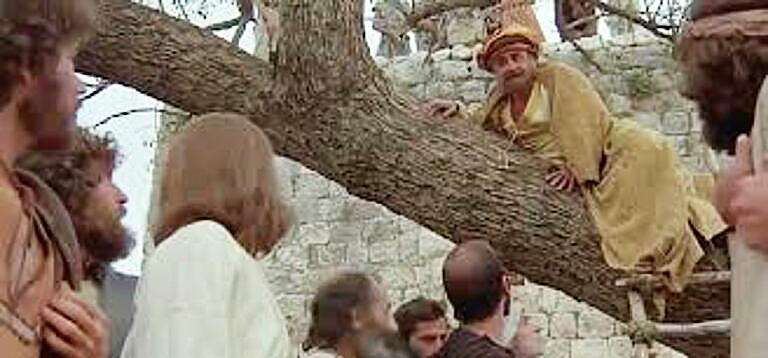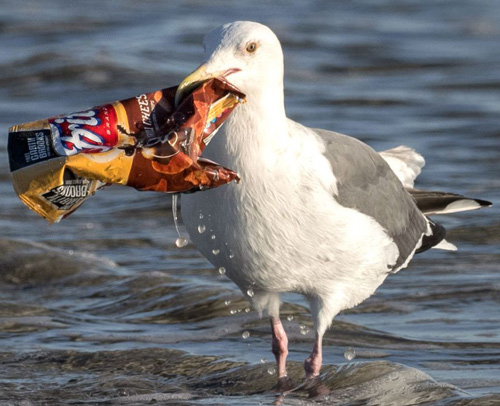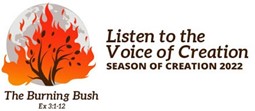
Augustine was born in Thageste, North Africa, in 354. His mother, Monnica, was a committed Christian and tried to raise Augustine in the faith.
In Augustine’s time, Christians were not baptized until later in life for fear that they would stain their souls with their post-baptismal sins. Augustine took this as a license to sin, and sin boldly. Although brilliant, he had a passionate and tempestuous personality and was infamous for his profligate lifestyle, complete with a scandalous mistress, creative cursing, and drunken debauchery.
Augustine had a quick and insatiable mind. He studied philosophy, rhetoric, and law and was an accomplished professor. Drawn to Neoplatonism and Manichaeism, Augustine remained restless, unable to find a system of thought that both engaged his mind and soothed his soul.
While Augustine was serving as professor of rhetoric at the Court of Milan, his mother Monnica’s pleas and prayers for her son to return to Jesus finally reached their climax.
In the summer of 386, Augustine heard the story of Placianus’s and his friends’ conversion after reading of the life of Saint Anthony of the Desert. He was jealous of the revelation given to them and was pacing his garden, wishing for some clarity in his faith, when he heard a child’s voice telling him to “take up and read.” Augustine believed this was the sign he sought and took it as a divine command to open the Bible and read the first thing he saw.
His Bible turned to Paul’s Epistle to the Romans: “Let us live honorably as in the day, not in reveling and drunkenness, not in debauchery and licentiousness, not in quarrelling and jealousy. Instead, put on the Lord Jesus Christ, and make no provision for the flesh, to gratify its desires” (13:13-14). Augustine felt the words were speaking directly to him. He was deeply convicted about his life of sin and felt called to dedicate his life to God. Shortly thereafter Augustine made the acquaintance of Bishop Ambrose, and, under his influence, came to view Christianity as both intellectually respectable and morally desirable. Augustine was baptized on Easter Eve 387.
His baptism and conversion to Christianity transformed Augustine completely from a prominent debaucher to a powerful defender of the faith. Upon returning to Africa, he gave away all of his possessions to the poor, with the exception of the family home—which he converted into a monastery. He was ordained a priest in 391 and consecrated as bishop of Hippo in 395, a position he held until his death thirty-five years later. He was described by his friend and fellow bishop, Possidius, as a man who “ate sparingly, worked tirelessly, despised gossip, shunned the temptations of the flesh, and exercised prudence in the financial stewardship of his See.”
Augustine’s writing provides his greatest legacy to the Church and the world. After his conversion, the quick, insatiable intellect he had applied to rhetoric and philosophy turned to theology and ethics. Augustine answered God’s call to “love the Lord your God with all your mind,” and fulfilled it well. Yet Augustine’s writing and thought were not dry and detached but passionate and evocative, engaging the heart as well as the mind.
Augustine’s Confessions is one of the earliest and most well-known examples of spiritual autobiography. In Confessions, Augustine tells the story of his life and faith: the good, the bad, and the ugly. 350 sermons and 100 works also survive Augustine did not hide his past sins and early debauchery but confessed them freely. In Confessions, he admitted that, as a young man he prayed, “Grant me chastity and continence, but not yet.” And in a letter to some bishops, he once wrote, “I too have sworn heedlessly and all the time, I have had this most repulsive and death-dealing habit. I’m telling your graces; from the moment I began to serve God, and saw what evil there is in forswearing oneself, I grew very afraid indeed, and out of fear I applied the brakes to this old, old, habit.”
Augustine of Hippo is commemorated in The Episcopal Church’s calendar on August 28.
Augustine’s Ideas
One question preoccupied Augustine from the time he was a student in Carthage: why does evil exist in the world? He returned to this question again and again in his philosophy, a line of inquiry motivated by personal experience. Augustine lived in an era when the pillar of strength and stability, the Roman Empire, was being shattered, and his own life, too, was filled with turmoil and loss. First he lost his mistress, then his mother, and finally his son. To believe in God, he had to find an answer to why, if God is all-powerful and also purely good, he still allows suffering to exist.
Augustine’s answers to this question would forever change Western thought. First, he states that evil exists because we have free will. God enables humans to freely choose their actions and deeds, and evil inevitably results from these choices. Even natural evils, such as disease, are indirectly related to human action, since they become evil only when in contact with people. According to this theory, a disease spreads only because men and women put themselves in harm’s way. Augustine gave a more theological explanation later in his life: we cannot understand the mind of God, and what appears evil to us may not be evil at all. In other words, we cannot judge God’s judgment. The roots of both of these answers stemmed from two philosophies, Manicheanism and Neoplatonism, which shaped Augustine’s ideas.
He helped formulate the idea of original sin – “the deliberate sin of the first man is the cause of original sin.” Adam by his fault transmitted to us not only death but also sin. The grace of Christ was therefore indispensable to human freedom .
Free Will and Responsibility
Before Augustine, Manicheanism was extremely influential among early Christians. Manicheanism was a cult that first arose in Roman North Africa, begun by a Persian named Mani, who died around A.D. 276. This cult combined elements of Christianity with elements of Zoroastrianism, the ancient religion of Persia, or Iran. Mani taught that the universe was a battlefield of two conflicting forces. On one side is God, who represents light and goodness and who seeks to eliminate suffering. Opposing him is Satan, who represents darkness and evil and is the cause of misery and affliction. Human beings find themselves caught in the middle of these two great forces. According to Manicheanism, the human body, like all matter, is the product of Satan and is inherently evil, whereas the soul is made of light. The only escape from evil is to free the soul from the body through the practices of asceticism and meditation. Manicheanism taught that Satan is solely responsible for all the evil in the world, and humankind is free of all responsibility in bringing about evil and misery. Augustine became a follower of Manicheanism during his student days in Carthage, but he ultimately broke with the Manicheans over the question of responsibility for evil, since he believed that human beings are capable of free will and are among the causes of suffering in the world. This disagreement led him to Neoplatonism, a system of philosophy developed by Plato’s follower, Plotinus, that would prove to be the most influential in his life and work.
The Importance of the Body and the Soul
Plato’s influence on philosophy was widespread during the later Roman Empire, the time in which Augustine lived. The philosopher Plotinus (a.d. 204–270), in particular, was responsible for redefining and reshaping Platonic philosophy into a cohesive system of thought called Neoplatonism. To explain the presence of evil, Plotinus drew on Plato’s distinction between the world of physical, tangible things and a world of intangible ideas or Forms. Plato taught that the physical world is changeable, perishable, and imperfect, in contrast with world of ideas or Forms, which is constant, perfect, and everlasting. Because the physical world is marked by change and corruption, it is impossible to fully know it. True knowledge can be achieved only by thinking about the eternal and perfect forms, of which the tangible world is only a copy, just as a painting is only an imitation of something real.
The Neoplatonists used this distinction between the physical and the ideal to explain the relationship between the body and the soul. They taught that the soul is perfect but trapped in an imperfect body. Because the body belongs in the physical realm, it is the root of evil. Thus, the soul seeks to break free of the body so it can live true to its perfection, in the realm of ideal forms. In Plotinus, Augustine found the important idea that human beings are not a neutral battleground on which either goodness or evil lays claim, as the Manicheans believed. Rather, human beings are the authors of their own suffering. Plotinus carried this line of thought further than Augustine was willing to accept, asserting that the body is unimportant in defining a human being and that true human nature involves only the soul and has nothing to do with the body. Augustine disagreed, maintaining that human beings are both body and soul together. We bring evil on ourselves because we actively choose corruptible elements of the physical world rather than the eternal, perfect forms, which are spiritual. Augustine argues that God does not allow evil to exist so much as we choose it by our actions, deeds, and words. Later, he came to the conclusion that it is impossible for us to understand the mind of God, and therefore we cannot come to a proper comprehension of why suffering exists.
The Possibility of Certitude
A number of philosophers before Augustine had argued that certainty is impossible and that the best the human mind can hope to achieve is the conviction that its conclusions are highly probable. Augustine disagreed with this premise and sought to demonstrate philosophically that certitude is in fact possible. His first argument is that if we accept the possibility of our conclusions being probable, we’ve already implicitly assumed that certainty exists, because things can only be “probably” true if truth (in other words, certainty) does in fact exist. If there is no truth, there is no probability. Second, happiness is the result of acquired wisdom, which all human beings desire. Thus, to say wisdom cannot be attained is to say that happiness is impossible—an unacceptable conclusion. Third, Augustine takes issue with the idea that the senses cannot be trusted, and he does not agree with his opponents that the mind is entirely dependent on the senses. On the contrary, our senses do seem reliable to a certain extent, and the mind can understand things independently of the senses, so therefore it must be even more reliable than the senses. Finally, Augustine points out that our mental states are beyond doubt. Whatever we may say or not say, we cannot doubt that at this moment we are thinking. We may say that we are being deceived, but this very fact of being deceived proves that we exist. These four reasons support the thesis that certitude is possible.








